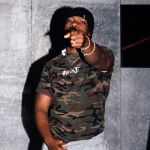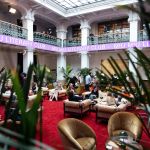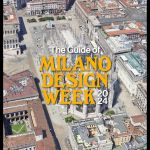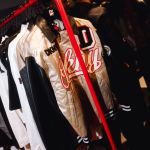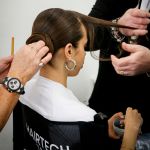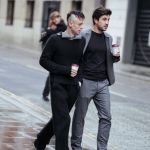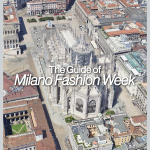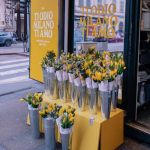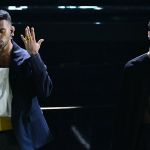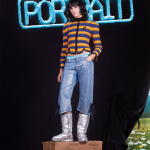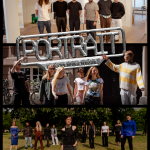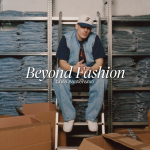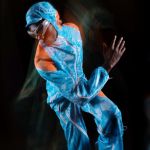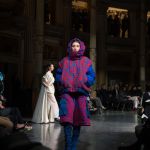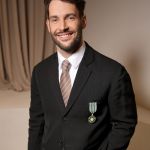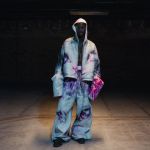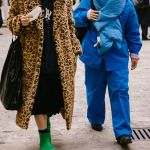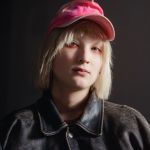
Hello Berlin #1 - JONAS LINDSTRÖM
Berlins freshest new photographer
February 1st, 2017
If you want to do something creative in fashion in Berlin, Jonas Lindström should be on the top of your list. His creative mind seems to be an open stage for ideas and the perfect base for developing a timeless and uncommon beauty. Instead of following established rules, he modifies but not completely ignores them. He does his own thing, which is why brands like Kenzo and Uniqulo, magazines like "ZEIT", and even the Bavarian State Ballet have wanted to work with him. Using all kinds of new media, from film to photography, he makes his audience think, dream, and believe in something beautiful that they have probably never seen before in this way - his way. This is what makes him such an interesting artist and person. This is why we picked him as the first candidate of our interview series from up north. While Berlin is in hibernation, I took the chance to meet this busy guy to ask him about his great success, which came almost naturally after finishing art school. So, this is now the second time I say "Hello from Berlin".

#1 Who is Jonas Lindström?
I am half Swedish, photographer and film maker, born in 1988 in Germany. Currently living in Berlin. I work mostly in fashion, mainly between Berlin and London.
#2 Why did you become a photographer?
I started out when I was very young, skateboarding with my friends. We were a big group and I was always the guy who carried the camera around. We did a small magazine with a local shop. That’s kind of how it started: I was always taking pictures and making videos and then it just evolved from that to other things. After I finished school I assisted a photographer for a year – that’s how I came to Berlin. Then I started to study at UDK (Universität der Künste).
#3 That leads me to the next question: When did you first hold a camera in your hands? I guess it was during your skateboarding time?
I think I was maybe thirteen, where it roughly started. In the beginning it was mostly skateboarding and documenting friends, either photographically or with small films. I mean it was the rise of the internet and we had a small website, did this small magazine, you know ...
#4 For you, Berlin is ...?
It’s very spacious and free - and that’s what I like. I like it as place to work and to live, I think it’s a very good combination for that. But I also like it as a base to always come back to, but also to travel from. Which is important, especially in my field.

#5 Why did you choose to start working in the fashion industry?
I was always working with people, so it kind of came naturally. I saw photography as a tool to work with people. Fashion felt like the area with the most freedom and possibility for expressing yourself. I started in fashion in a narrower sense, but now it’s opening up again. A lot of my film projects will always have that fashion influence and I think pretty much every Hollywood film is influenced by it. But now I kind of work on a lot of projects, that centre around something else and have fashion only as one element, especially in my film projects.
#6 You entered the fashion business almost directly after art school. How did you make this happen?
Actually it even happened parallel to it. We were a group of friends, who were studying there. We were all studying graphic design, so I was working in different disciplines. But at some point I realized, even though I like knowing all these things, I prefer photography, or let’s say image based mediums. Then we just started alongside university on small projects here in Berlin and this went on for a couple of years. As I graduated in 2014 I could pretty much switch directly, I already had a few bases that I could work from.
#7 What are your biggest goals in terms of aesthetics - and are they akin to the current mood of the industry?
A difficult question ...the mood of the industry... I think they are not necessarily aligned to it because I decided in a very early state that I want to work completely digital and this is actually more opposite to what is happening at the moment. But for me, being part of my generation always made me feel like I wanted to explore, rather than give into a beautiful and a romantic vision of nostalgia. Which doesn’t mean that all guys who work on analogue film are nostalgic, but for me it was interesting to go somewhere, where there was more space for experimenting and to find new aesthetics. I quite like this digital approach to things because it sometimes makes things a bit harder or things don’t immediately look very good, but you can work with and develop that.

#8 Do you have any rules that you follow when you’re working?
Yeah definitely. I mean, I like to prepare a lot, but then it’s important to just let go. I like to have the idea of what I want to do and to have a good background on everything, I think because photography is one of those spontaneous mediums so I think it’s important to go on set with an open mind... to let things happen. So something even more beautiful can happen, that you couldn’t even think of before. So I work with a concept, but when I go to the studio or any location I like to make it a kind of laboratory. You don’t focus too much on one thing, rather have open eyes and look around and see what is actually the most interesting thing you can do here. I like when something spontaneous happens, but then looks very precise. Like how a moment can unfold and turn into a perfect composition when actually it was kind of an accident.
#9 Do you think being part of the fashion world can change our or your view of things?
In an ethical sense ... It’s always been beautiful images of beautiful worlds, but I think you can do something. You can work in terms of body images, types of beauty and perceptions, that’s where you can definitely influence some things or where you can go against the industrial standards. Like always, working with models which come from an agency that you have never met before, which are probably younger than they tell you they are ... so, in a lot of projects that I do, I work with people that I know - we street casted them or I have worked with them frequently - to make them part of the project as well. This is what I try to do, because I don’t necessarily agree with a lot of beauty standards that are around.
#10 You work as a photographer, but also do films. Why is that, what challenges you and how do you overcome them?
In the beginning I thought the mediums would be very similar, but in fact they are not. And I think that’s very interesting. Even though they are both visual mediums. So when I was working with film some ideas didn't work, because they were photographic ideas – I quite like that it challenges me to think about narrative. I quite like how emotional film can be, how quickly it can capture you, where a photo can be a bit slower on that - the momentum that you can create with a film... yeah.

#11 What do you think is your biggest present to your audience?
Haha ... well, creating images that make you think about and maybe also make you question things and shows something new.
#12 Emotionally driven creativity vs. conceptual work flow: What does your personal work life look like?
I think a good mix of both. A bit like I said before ...I like to think a lot about the project before and to have everything set up. You should never leave emotional spontaneity out of it. I like to trust my intuition and if something I thought about doesn’t feel right, I don’t do it.
#13 What or who inspires you?
I would definitely say films inspire me a lot. I try to stay away from too much looking at mood boards and other people’s work. I try to get inspired by things other than photography like a ballet or performance, a piece of art or a sculpture. But then you have to translate it. It’s something different than getting inspired by a fashion photo, because than it’s very close to copying. So I think inspiration is very normal and necessary, but I try to make it my own in the process.
#14 The best picture you’ve ever taken was?
I don’t know. Always the next one probably. I would never say: "This is the best I have taken“, because I always want to do another one.

#15 The picture or video that you really want to shoot is?
Not one picture, I would love to do a proper film. I am currently working on a big film installation where I put a lot of the ideas I’ve had in the last years into one project and that is coming out very soon. So I kind of have this process right now, of realizing a lot of ideas which accumulated over the past. But it doesn’t really boil down to the one image, celebrity or model, person or place. I rather work on something that is bigger.
I think the biggest thing is to hold it back as long as they can. Go to university, don’t show your work to anyone but yourself and try to establish a voice. Then, and only then, slowly start spreading it out. It’s very dangerous if you put out work that you are not sure of, because then you get pushed around. Don’t lead into this social media. Everybody always have to show what they are doing all the time. I think young photographers should just work for themselves for as long as they can and get as confident as they can. That’s very difficult today.

#17 Do you have any role models - artists you admire or get inspired from?
I think it’s always very difficult to narrow it down to one person. But in art for example Wolfgang Tillmans is someone I deeply admire. In film making it’s Werner Herzog and his way of creating. I quite like to identify myself with a certain type of German-ness. German new wave is quite inspiring, especially how they approach things conceptionally.
#18 How and where do you see yourself in 30 years?
Wow, I don’t know. Hopefully I have made a film by then. That would be cool, that would be quite nice. But surrounded by friends still doing what we do ...inspired and still looking ahead at the next project and not being finished yet.













